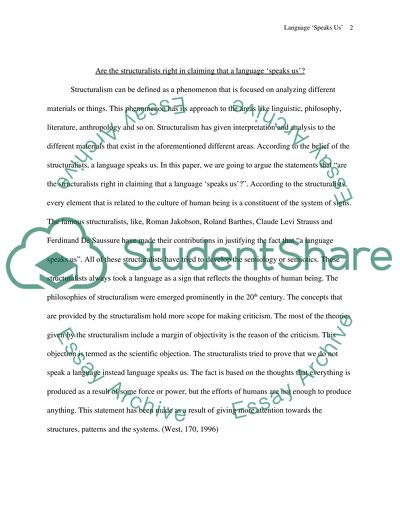Cite this document
(“Structuralism Essay Example | Topics and Well Written Essays - 2750 words”, n.d.)
Structuralism Essay Example | Topics and Well Written Essays - 2750 words. Retrieved from https://studentshare.org/miscellaneous/1521670-structuralism
Structuralism Essay Example | Topics and Well Written Essays - 2750 words. Retrieved from https://studentshare.org/miscellaneous/1521670-structuralism
(Structuralism Essay Example | Topics and Well Written Essays - 2750 Words)
Structuralism Essay Example | Topics and Well Written Essays - 2750 Words. https://studentshare.org/miscellaneous/1521670-structuralism.
Structuralism Essay Example | Topics and Well Written Essays - 2750 Words. https://studentshare.org/miscellaneous/1521670-structuralism.
“Structuralism Essay Example | Topics and Well Written Essays - 2750 Words”, n.d. https://studentshare.org/miscellaneous/1521670-structuralism.


